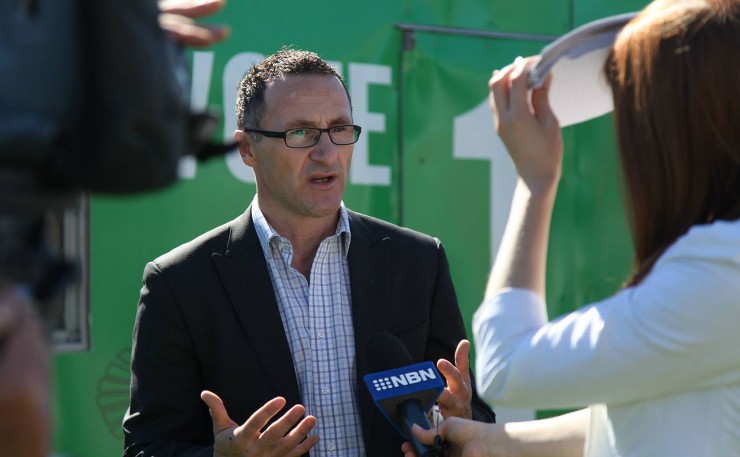The measure, once pushed by the White House, will today be backed by the Greens. They argue the funds raised could be used to help reverse cuts to health and education. Max Chalmers reports.
The Greens are set to become the first significantly sized Australian political party to support the implementation of the ‘Buffett Rule’, a measure that would aim to return billions of dollars to the budget by targeting top income earners who use deductions and loopholes to substantially lower their annual tax bills.
In a move that will put pressure on Labor to consider similar measures, Greens leader Richard Di Natale will today make the case for the policy during an address to the National Press Club.
The Buffett Rule derives its name from billionaire investor Warren Buffett, who was allegedly left disturbed after learning his employees paid a higher rate of tax than he did.
The policy aims to prevent high income earners using deductions to lower their tax bills below a certain level by setting a ‘floor’, a minimum percentage they must pay regardless of what deductions they find.
The Greens’ version of the proposal would see those earning over $300,000 in income – considered to be in the top one per cent of income earners – pay a minimum of 35 per cent of their total income in tax.
“This is not a new tax – it is a guarantee on existing tax rates for the top one per cent,” according to Di Natale.
“This year’s tax data showed there are dozens of millionaires in Australia paying no tax.”
In arguing for the change, the Greens’ point to the fact 56 people who earned a combined $129 million last year paid zero tax.

Advice sought from the Parliamentary Budget Office by the Party indicates the proposal could raise over $7 Billion in extra revenue over the forward estimates period, reaching a total of over $35 billion over the next decade. The PBO did warn, however, that such predictions would be of low reliability given potential changes to population, income, and the behaviour of those who would be affected by the measure.
The new policy adheres closely to a plan laid-out by progressive economics think tank The Australia Institute in a 2015 report commissioned by GetUp! The report said that many high income earners do not “aggressively minimise” their tax and would therefore not be impacted by such a change, but noted those on higher incomes were more likely to take advantage of tax deductions.
Matt Grudnoff, a Senior Economist at the Australia Institute who authored the report, has previously written that “the beauty of the Buffett Rule is that it doesn’t try to close tax loopholes only to have very clever accountants find new ones, it simply makes deductions after a certain point worthless”.
In 2015, Labor adopted a motion into its national platform urging the Party to give consideration to supporting a Buffett Rule, but the shadow cabinet has reportedly since gone cold on the idea. The Party has now turned to other measures that would return funds to the budget, including restricting negative gearing concessions to new homes, reducing capital gains tax concessions, and cutting superannuation tax concessions for high income earners.
The Greens were lashed by Labor at the end of 2015 after doing a deal to help the Coalition pass tax transparency laws through the Senate. While the new laws forced companies with a turnover above $200 million to publicly report on their tax affairs, Labor had been pushing for stronger measures.
The Buffett Rule received a major boost in prominence in 2011 when US President Barack Obama pushed for a mild version to be introduced in the US, only for it to be shot down by a Republican dominated Congress.
Earlier in the year the Australian Council of Trade Unions backed the implementation of Buffett Rule measure in Australia.
Donate To New Matilda
New Matilda is a small, independent media outlet. We survive through reader contributions, and never losing a lawsuit. If you got something from this article, giving something back helps us to continue speaking truth to power. Every little bit counts.





